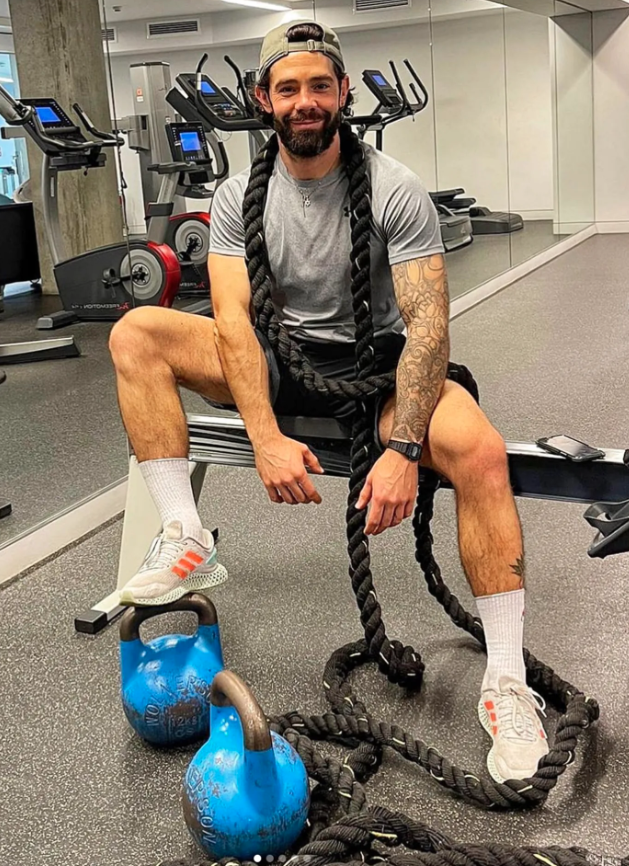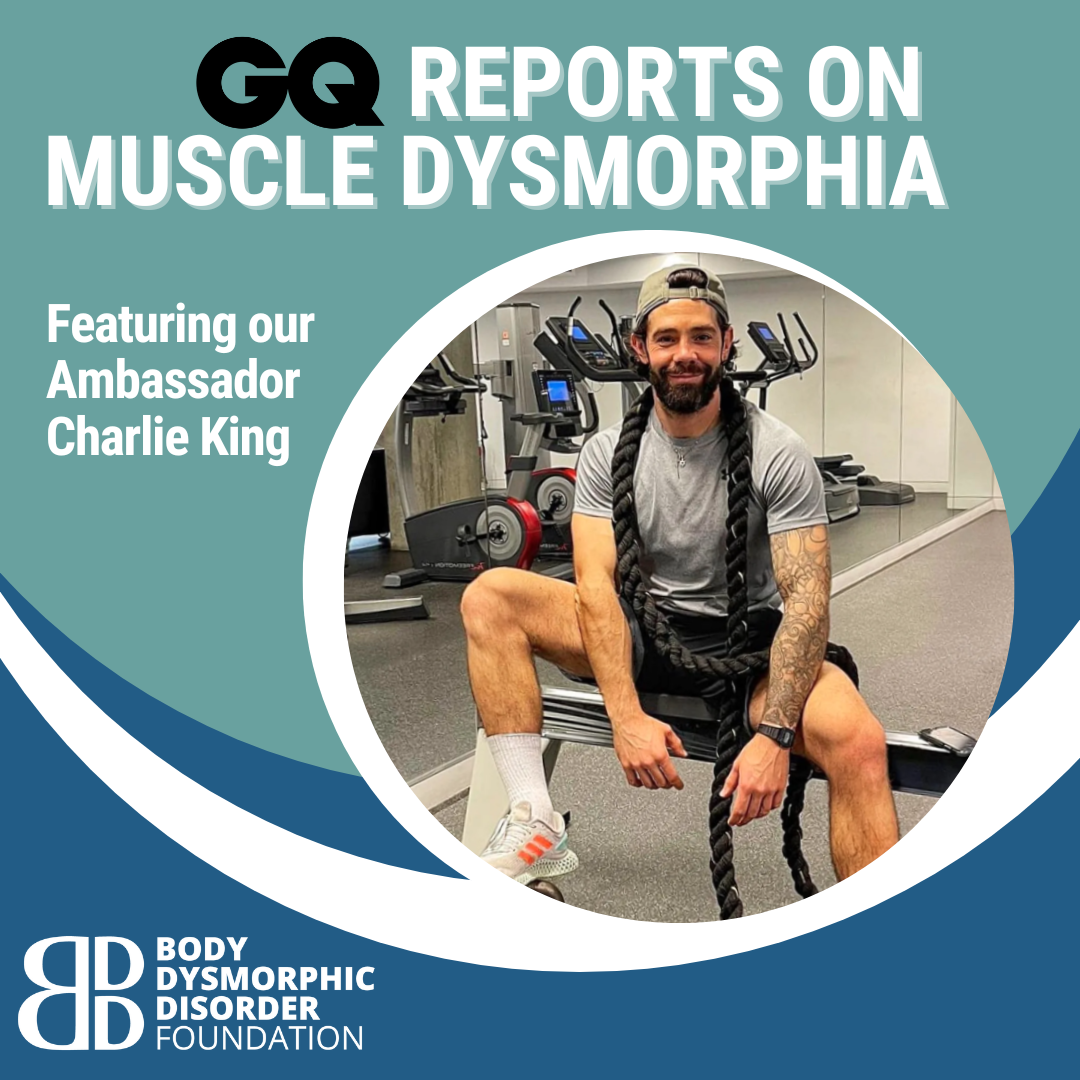GQ talks to experts and sufferers, including Ex-TOWIE star Charlie King, and BDDF Charity Chairman Rob Willson, about how to catch the signs and help those at risk
Muscle Dysmorphia is a type of BDD which lead to excessive weightlifting, overtraining even when injured, restrictive diets, disordered eating, and often steroid abuse. It can often cause an individual to prioritise working out over other commitments such as relationships, work or family life.
“If you have Muscle Dysmorphia you are preoccupied by one or more perceived flaws in your appearance, and these will occupy you for several hours a day. They are causing clinically significant levels of distress, anxiety and depression and they are interfering with your everyday life. It’s not subtle.”
It affects men more than women and causes significant distress, with devastating consequences on someone’s life. Sadly, it appears to be on the rise.
The condition is poorly understood, and therefore ‘brushed off’ and not recognised as being severe. However, it’s seriousness should not be underestimated, and tragically, suicidal ideation and completion for those with MDD is common.
Dr. Rob Willson, who has treated people with the condition since the 90s, explains it’s not the physical side that it the main concern. Sufferers will choose the gym over a social event or their career.
“Where you have someone who has over trained and injured themselves and is at home feeling devastated, that’s a real worry. We’re not mucking about here.”

” I ended up retreating from people and making excuses as to why I didn’t want to be around people.”
Charlie King, one of our ambassadors at BDDF, speaks with GQ on this topic and shares his experience of Muscle Dysmorphia. He explains that he was exercising through injury, and withdrawing from social events which would interfere with his training.
After engaging in CBT, to support him in cutting back on checking and comparison behaviours, he is now finding a balance and has reached a kinder relationship with his body while still being a fitness enthusiast.
Charlie now speaks openly about BDD and MDD on his social media platforms, encouraging others to seek support if they are struggling, opening up the conversation and raising awareness of the condition.
“If you’re noticing that you’re becoming obsessive and the enjoyment factor is starting to dwindle that’s the first sign.”
If you or someone you know is struggling with these symptoms, please reach out to our helpline on support@bddfoundation.org or find out more on our Muscle Dysmorphia information page.

